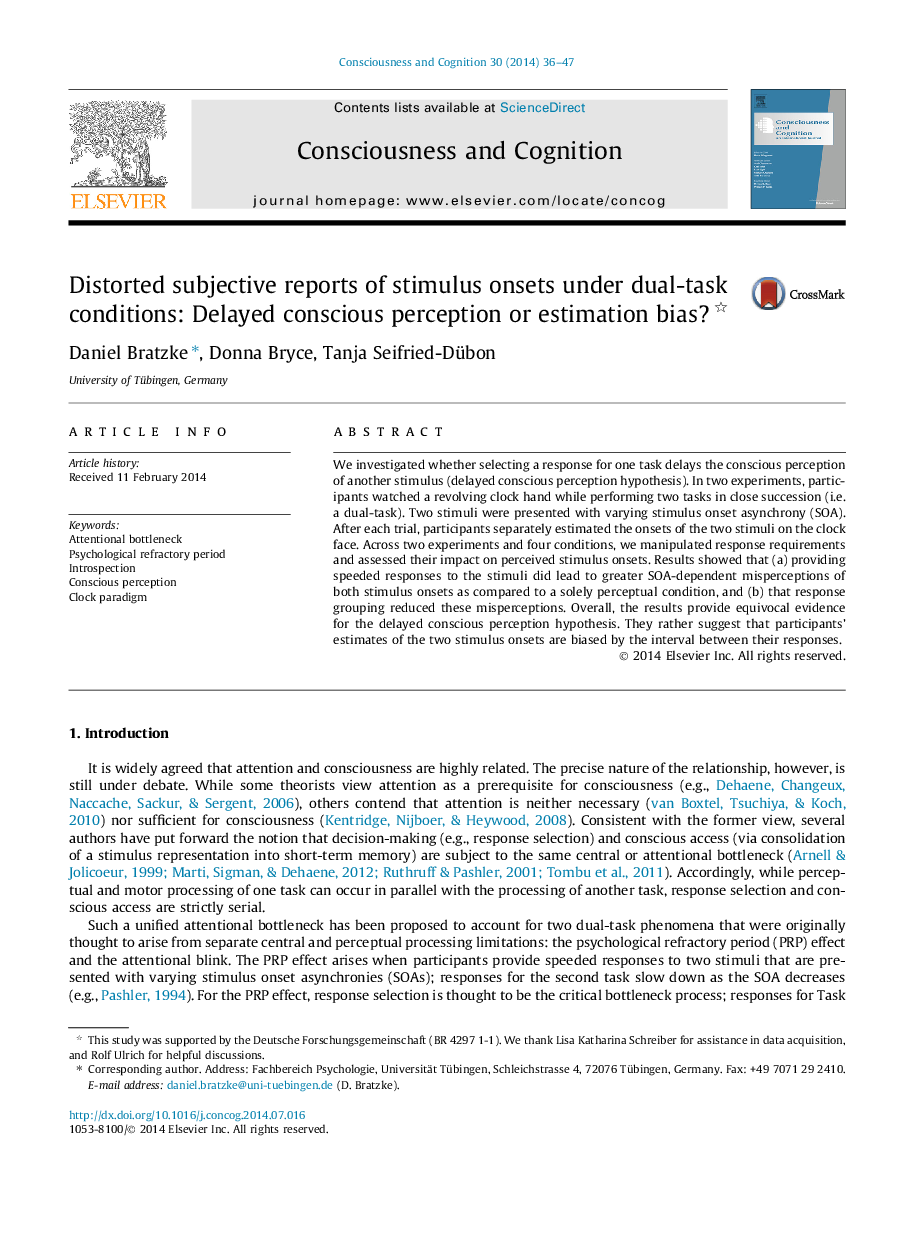| Article ID | Journal | Published Year | Pages | File Type |
|---|---|---|---|---|
| 7289692 | Consciousness and Cognition | 2014 | 12 Pages |
Abstract
We investigated whether selecting a response for one task delays the conscious perception of another stimulus (delayed conscious perception hypothesis). In two experiments, participants watched a revolving clock hand while performing two tasks in close succession (i.e. a dual-task). Two stimuli were presented with varying stimulus onset asynchrony (SOA). After each trial, participants separately estimated the onsets of the two stimuli on the clock face. Across two experiments and four conditions, we manipulated response requirements and assessed their impact on perceived stimulus onsets. Results showed that (a) providing speeded responses to the stimuli did lead to greater SOA-dependent misperceptions of both stimulus onsets as compared to a solely perceptual condition, and (b) that response grouping reduced these misperceptions. Overall, the results provide equivocal evidence for the delayed conscious perception hypothesis. They rather suggest that participants' estimates of the two stimulus onsets are biased by the interval between their responses.
Related Topics
Life Sciences
Neuroscience
Cognitive Neuroscience
Authors
Daniel Bratzke, Donna Bryce, Tanja Seifried-Dübon,
